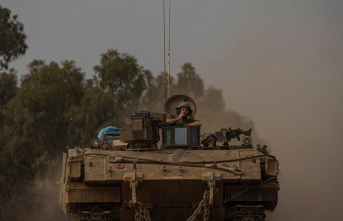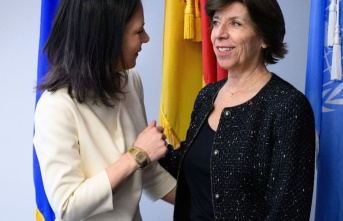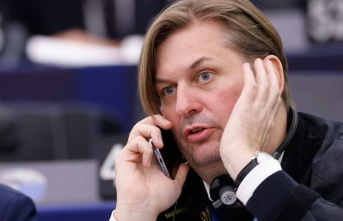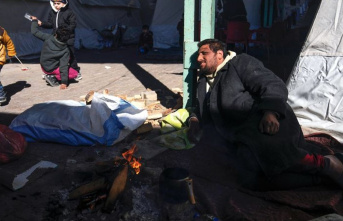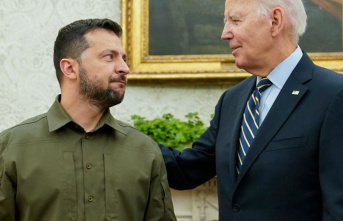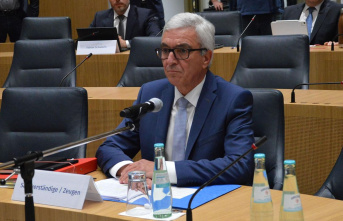Federal President Frank-Walter Steinmeier has called on the leadership in Iran to end violence against anti-government demonstrators. Ahead of a meeting with other European heads of state on Thursday in Malta's capital Valletta, he said: "An appeal must go out from here that the regime in Tehran stops the violence and shows respect for the young people and women who are there on the streets are."
Steinmeier announced that he would address the situation in Iran at the meeting of the so-called Arraiolos Group. Security agencies used great violence there, especially against young people and women. "We can't be indifferent to that."
The trigger for the demonstrations was the death of 22-year-old Mahsa Amini in mid-September. The moral police had arrested her because of her alleged "un-Islamic outfit". The woman fell into a coma and died in a hospital. Critics accuse the morality police of using violence. The police reject that. Since Amini's death, thousands have been demonstrating across the country against the government's repressive course and the compulsory headscarf.
The Arraiolos Group meets once a year. Its members are the heads of state from 16 EU countries, whose presidents do not have an executive function but rather a representative function. The informal association is named after a small town in Portugal where the first meeting was held in 2003.
Discussion with Poland's President about reparations
A central topic of the meeting in the smallest EU country, Malta, was the Russian war of aggression in Ukraine. "We are all affected by this war, but we are not all affected in the same way," said Steinmeier. For some participants, security issues are paramount, for others energy or economic issues. "It is important that we remain united. And that this meeting sends out the signal that we are firmly on the side of Ukraine."
Steinmeier said he really appreciates the annual meetings of heads of state. "It's a really open exchange, without being tied to a specific agenda, without being tied to the formulation of resolution papers." This is particularly necessary at a time of major geopolitical ruptures.
On the fringes of the meeting, the Federal President also held bilateral talks with his Polish counterpart Andrzej Duda, which discussed, among other things, the latest Polish demands for reparations for the damage caused by Nazi Germany. He previously announced that he wanted to emphasize the government's position. "The federal government has given a clear answer to this. The question of reparations is not a question that is in any way open at the moment."
Germany acknowledges its historical responsibility and is grateful that Poland reached out to a reconciliation process after the Second World War, said Steinmeier. This had been successful. "That's why I will advocate that we continue the good neighborly relations that we have established with Poland over the past decades."


